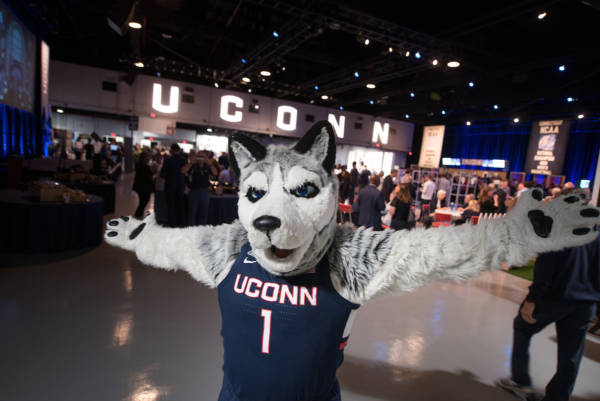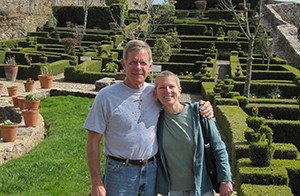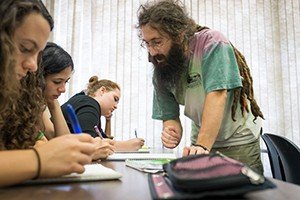Holster Scholarship Supports Honors Research, Independent Study
Early in the academic year, Robert Holster ’68, travels from his Florida home to UConn to listen to some students talk about their summer vacations.
The students, all enrolled in UConn’s prestigious Honors Program, spent their summer working on a self-designed research project made possible by the Holster Scholars First Year Project. The endowed fund was established by Holster and his wife, Carlotta,’68, in 2010 to support independent study projects by a few motivated Honors Program students in the summer following their freshman year. Accepted students receive a stipend, individualized mentoring and guidance from faculty and staff, and experience designing, implementing and presenting creative work.
“I am delighted by the way the program is working,” says Holster, who was a member of the inaugural Honors Program cohort and went on to a long business and financial management career with large public and private companies involved in the health care industry. “The students keep getting better and better,” he added. “Every year, I learn about serious work through clear and successful presentations, and that’s important. Great ideas don’t add up to much if you can’t figure out how to present them effectively.”
“One of the original goals for the program, which I think has been nicely met, is to provide students with an opportunity for research at the very beginning of their academic career. It gets them engaged right away and they get more out of college,” says Holster.
“I feel that the success of the Holster Scholars program to date—and it has unquestionably exceeded my expectations in terms of the quality of the students and their work—is attributable more than anything else to the effort of Jill Deans, the director UConn’s Office of National Scholarships and Fellowships, and to the faculty and student mentors who coach the Scholars. Jill has been the one constant since the inception of the program four years ago and a key reason for the growth of the program and the accomplishments of the students,” says Holster.
Prospective Holster scholars must complete a highly selective application process in the fall of their freshman year, submitting a thorough project proposal that they fine-tune during their spring semester. Generally, six students are selected for the program but the latest group of Holster Scholars totals nine.
“The Holster scholars come alive with this opportunity to delve deeply into a field they are passionate about,” says Jennifer Lease Butts, assistant vice provost for enrichment programs and director of the Honors Program.
“I felt fortunate to be a member of the Honors Program,” says Holster. “I think it made a great difference to be part of a small group that had the benefit of experienced and engaged faculty members.”
Nine Holster Scholars gave presentations on projects ranging from implementation of voter identification laws and the role of mental health services in public high schools to the centipedes of the Great Smokey Mountain National Park and the role of the cytoskeleton in neurodegenerative diseases.
“Few schools provide freshmen the opportunity to do independent research right off the bat,” says John Ovian, who researched oxoammonium salts and their uses in green chemistry. “Thanks to Mr. Holster, I was able to perform research on something I was truly interested in, while gaining crucial laboratory experience that will benefit me throughout my undergraduate years and when I go to graduate school. This opportunity has enhanced my candidacy for other prestigious scholarships.”
Patrick Adams, who researched the economic model known as two sided-matching, says he learned “academic research is not a competition. It’s a collaborative effort, and the most effective way to gain insights into a new problem is often to build off of what others have done before you.”


